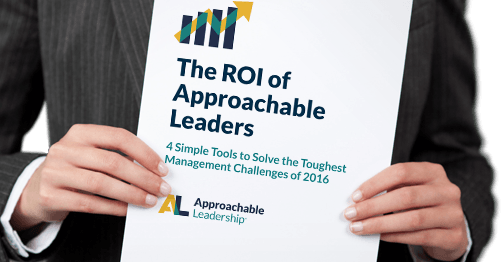
When Empathy Can Backfire
Most empathy advice boils down to a version of “walk a mile in the shoes” of another person. Recent Harvard Business Review research suggest this advice is exactly wrong. It finds “it’s harder to empathize with people if you’ve been in their shoes.”
For most of us, this completely contradicts what we thought we knew. We kindly remind others, “Yes, I totally understand. I’ve been there too. I made it through. So can you.” According to HBR, this is ineffective for two reasons.
First, people generally have difficulty accurately recalling just how difficult a past aversive experience was. Though we may remember that a past experience was painful, stressful, or emotionally trying, we tend to underestimate just how painful that experience felt in the moment. This phenomenon is called an “empathy gap.”
Second, people who have previously overcome an aversive experience know that they were able to successfully overcome it, which makes them feel especially confident about their understanding of just how difficult the situation is. The combined experience of “I can’t recall how difficult it was” and “I know that I got through it myself” creates the perception that the event can be readily conquered, reducing empathy toward others struggling with the event.
Think about how this relates to approachability. A big part of being approachable is shrinking the “power distance gap” between you and your coworker. This “I’ve walked in your shoes” conversation increases distance instead of shrinking it. The person expressing frustration is likely to feel misunderstood or believe you think they are thin-skinned.
When an employee comes to us with an issue – whether it be personal or professional – we try to relate it to our own past experiences. This is natural and at least starts in the right direction. But instead of focusing on past experiences, we should instead focus on past feelings. Instead of trying to give their story a happy ending, just share about when you’ve felt a similar feeling. Sit in that uncomfortable place for a time. That is true empathy.
Theresa Wiseman, a nursing scholar, helpfully offers four qualities of empathy:
- Perspective-taking, or the ability to take the perspective of another person (or recognizing that their perspective is their truth)
- Staying out of judgement
- Recognizing emotion in other people
- Communicating that emotional recognition
Notice none of those steps is trying to make the other person feel anything other than what they are already feeling in that moment. These steps are all about being present with them. It’s OK to recall walking a similar path before. But don’t be in a hurry to tell where that path ultimately led for you. After all, your path was your path. If you want to shrink power distance just stand right there with the other person wherever they happen to be on their path. Then walk that path together.













